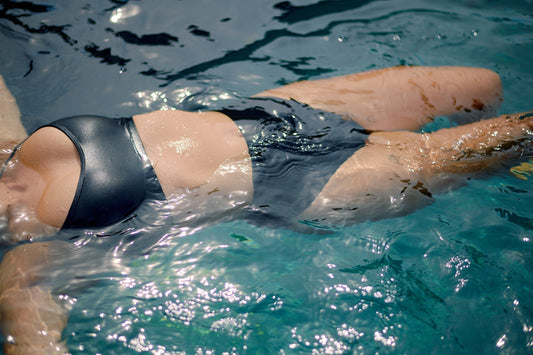
COVID-19 Is A Feminist Nightmare
Jane H.Aisle’s hometown of Vancouver has now been grappling with the impacts of the COVID-19; and if we’ve learned anything, it is that COVID-19 is a feminist nightmare. The complications, fragilities and dangers that many are experiencing are not caused by the novel coronavirus but have been exposed by this pandemic. The patriarchal and racist seams of our society have been laid bare; proof that this world works better for some than others, and when the chips are down, we do not experience disaster equally.
We live in a violent society. The near-worldwide stay-at-home orders flattened the curve, but they also revealed an ugly truth for many - that home is not a safe place to be. Statistics Canada is reporting that one in ten Canadian women currently fear violence at home, and police forces are reporting a 22% jump in domestic disturbance calls. Battered Women’s Support Services (BWSS), an organization that has been tackling intimate partner violence for decades in Vancouver, reported a 300% spike in calls to their hotline. Being subject to violence in your own home is completely unacceptable, but it is a literally inescapable reality for too many. We didn’t do enough to stop intimate partner violence before the pandemic, and now our inaction is being paid for, painfully, by those we failed to help.
We live in a racist society. Anti-Asian rhetoric and scapegoating is common and often coming from some of the most wealthy and privileged individuals in our society. North Vancouver MLA Bowinn Ma astutely pointed out that COVID-19 did not cause racism but it was as lethal to our communities as any virus.
With everything that's been going on, I've felt very strongly the need to say something about #AntiAsianRacism during #COVID19 ...so here I am saying it. #bcpoli #BryanAdams #HateIsAVirus pic.twitter.com/j5Yv8J9ver
— Bowinn Ma (@BowinnMa) May 13, 2020
New data by the CDC shows that African-Americans are disproportionately dying of COVID-19. This is not because the novel coronavirus is particularly lethal to Black people, but because Black people experience structural inequities in healthcare that makes it harder for them to access safe, supportive healthcare. Native Americans also have been particularly vulnerable to the virus. Doctors Without Borders has dispatched a team of nine to the Navajo Nation, which is reporting some of the highest rates of infection per capita in the United States. It is hard to self-isolate if your home lacks running water, a reality for one in three Navajo as well as countless other Indigenous people.
We live in a patriarchal society. Workforces that are disproportionately female have been deemed both essential and nonessential; as society shifted under the stay-at-home orders, the services that some provided were no longer essential. This recession is rare because it is driven by the service economy, an economy so staffed by women in low-wage and precarious work, it has been dubbed a she-cession. Nearly 14 million Canadians applied for the Canada Emergency Response Benefit, proof that our government can act quickly to support workers. However, Bill C-86, vital pay equity legislation that has passed parliament and received royal assent, still has not been enacted at the federal level. It was passed in 2018, and would have given many workers the opportunity to be paid fairly and securely before we ever considered physical distancing.
What has become clear is that COVID-19 is a disease that worsens preexisting conditions. The preexisting conditions of sexism, racism and homophobia made us more vulnerable to this disease. It will cause more people to die and suffer, because we did not make the changes necessary for a healthier society that would have been more resilient. Now, at Aisle, we’re sewing masks for our neighbours in the Downtown Eastside. It helps, but it’s not enough. We need to move past this pandemic with a recovery that not only makes us immune to COVID-19, but resistant to what made us sick as a society in the first place.
Please stay home. Please wash your hands, and wear a mask. Keep space between you and others. However, call your elected representatives, donate and learn. COVID-19 is a feminist nightmare, and our new normal has to be better for everyone.
Photo by Michael Amadeus on Unsplash




